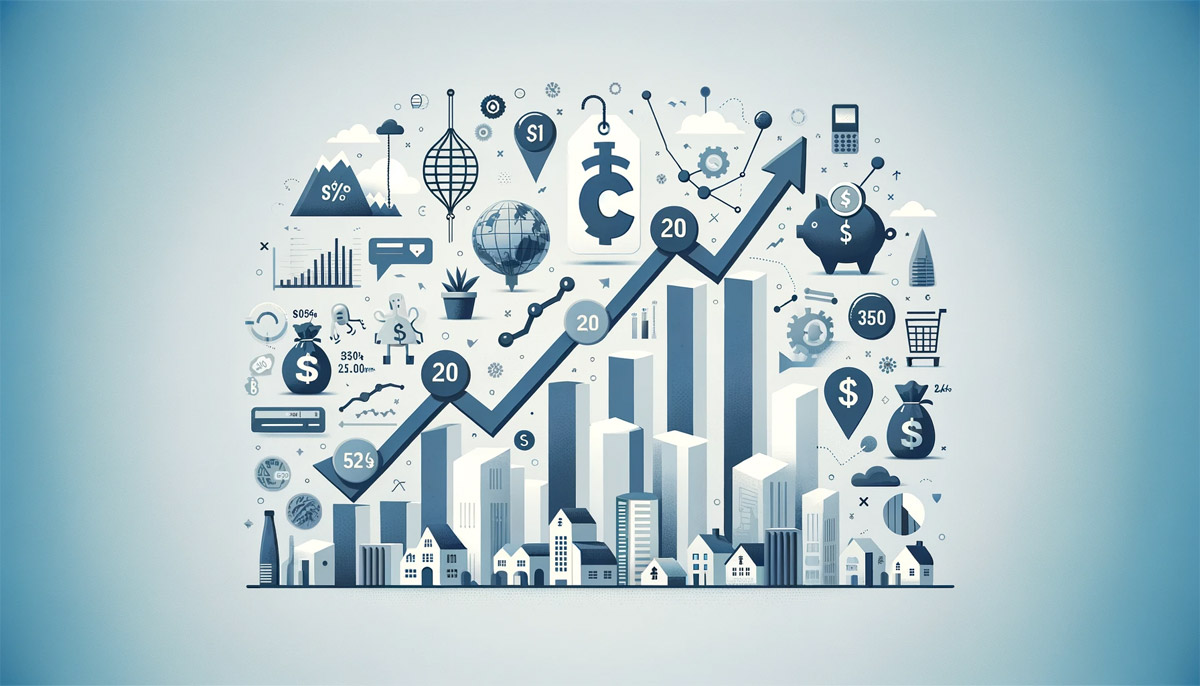
Understanding Inflation: Causes and Economic Impact
Inflation is a term that resonates across the economic spectrum, affecting everyone from the policymakers in high offices to the general public managing household budgets. At its core, inflation signifies the rise in the prices of goods and services over time, leading to a decrease in the purchasing power of a currency. This article aims to shed light on the intricate mechanisms of inflation, exploring its causes, consequences, and the pivotal role it plays in economic discussions and policy formulations. Learn what causes inflation, and how does it affect the economy?
Understanding Inflation
What is Inflation?
In the realm of economics, inflation is more than just an uptick in prices; it's a complex phenomenon that reflects the dynamics of supply and demand, production costs, and the money supply within an economy. There are primarily three types of inflation that economists discuss: demand-pull inflation, cost-push inflation, and built-in inflation.
- Demand-pull inflation occurs when the demand for goods and services surpasses the available supply, leading to price increases.
- Cost-push inflation is the result of rising production costs, such as materials and labor, which businesses pass on to consumers in the form of higher prices.
- Built-in inflation revolves around the expectation of future inflation, which prompts workers to demand higher wages, subsequently causing businesses to raise prices to cover the increased wage bill.
Key Factors and Terms
In analyzing inflation, it is crucial to understand the interplay of various factors:
- Economic Growth and Purchasing Power: Economic growth can spur inflation if it outpaces the expansion in the supply of goods and services, reducing the value of money as purchasing power diminishes.
- Supply and Demand Dynamics: The balance between what is available (supply) and what people want (demand) significantly influences price levels.
- Production Costs: An increase in the costs of raw materials or wages can lead to higher prices for the end products.
- Money Supply Expansion: An increase in the money supply without a corresponding growth in economic output can diminish the value of currency, leading to inflation.
Causes of Inflation
Demand-Pull Inflation
This form of inflation is driven by an increase in demand across the economy, outstripping supply. It can occur due to various reasons, such as increased consumer spending, government expenditure, and investment. When more money chases the same amount of goods and services, prices naturally rise.
Cost-Push Inflation
Cost-push inflation arises when the costs of production increase, leading businesses to raise prices to maintain profit margins. Factors contributing to this include higher raw material costs, increases in wages, and other operational costs. This type of inflation can create a wage-price spiral, further exacerbating inflationary pressures.
Expansion of the Money Supply
The money supply in an economy plays a critical role in influencing inflation. When a government prints money or a central bank injects more capital into the financial system without a commensurate increase in goods and services, the value of the currency may decline, leading to inflation.
Impact on the Economy
Inflation impacts various aspects of the economy, from eroding purchasing power to influencing business strategies and economic policies.
- Purchasing Power: Inflation reduces the amount of goods or services you can buy with a unit of currency. This diminishes consumer purchasing power, affecting overall living standards.
- Savings and Investments: High inflation rates can erode the real value of savings and fixed-income investments, prompting investors to seek higher returns to compensate for the inflation risk.
- Business Planning and Economic Growth: Inflation can create uncertainty, making it challenging for businesses to plan for the future and allocate resources efficiently, potentially stifading economic growth.
- Wages and Unemployment: Inflation can lead to higher wages as workers demand compensation for increased living costs. However, this can also lead to higher unemployment if businesses cut back on hiring due to increased labor costs.
Managing Inflation
Central banks and governments play a crucial role in managing inflation through various monetary and fiscal policies. By adjusting interest rates, controlling the money supply, and setting tax and spending policies, they aim to mitigate the adverse effects of inflation and maintain economic stability.
Global Perspective
Inflation trends vary significantly across countries due to differences in economic policies, market dynamics, and external factors. Global events, such as oil price shocks or financial crises, can also have widespread effects on inflation around the world.
Conclusion
Understanding inflation's causes and effects is crucial for economic stability and growth. By analyzing the intricate dynamics of supply and demand, production costs, and money supply, policymakers and the public can better navigate the challenges posed by inflation. As we continue to explore and manage this complex economic phenomenon, it remains vital to keep informed and engaged with the latest research and trends in the field.
Economics




